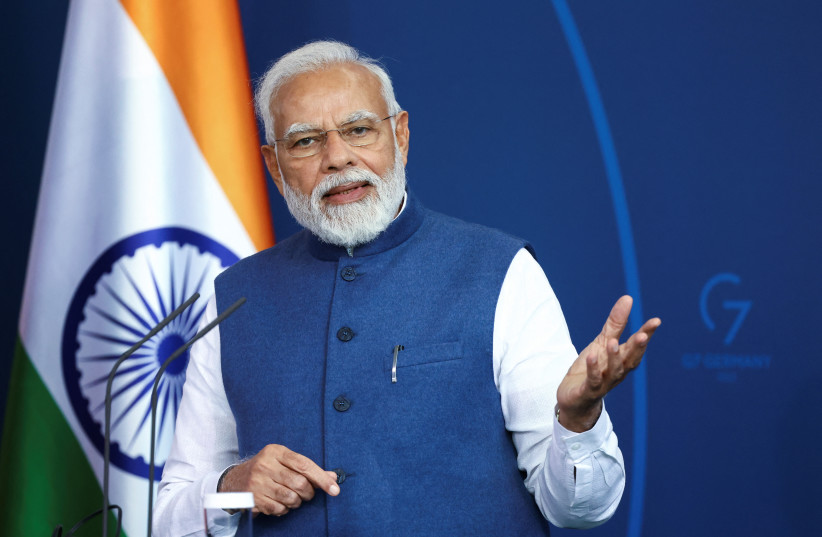Indian Prime Minister Narendra Modi, arrived in Abu Dhabi on an official visit on Saturday, where he met with UAE President Mohamed bin Zayed.
This is an important visit and showcases the increasingly close ties between India and the UAE. India and the UAE are also part of the I2U2 partnership of India, Israel, the UAE and US. India and Israel are strategic partners. That means that the visit by India’s Prime Minister has implications for the region.
According to UAE state news agency WAM the two leaders“engaged in warm conversation about the historical ties between the two countries and their people, and praised the level of joint strategic cooperation between the two nations across multiple vital sectors.”
“I had the pleasure of welcoming Indian Prime Minister @narendramodi to Abu Dhabi today. We discussed the ongoing progress of our bilateral ties, our shared interest in promoting sustainable global growth, and ways to further boost collaboration between our countries & our people,” the UAE President said in a social media statement.
Modi echoed this on Twitter, noting “it is always gladdening to meet HH Sheikh Mohamed bin Zayed Al Nahyan. His energy and vision for development are admirable. We discussed the full range of India-UAE ties including ways to boost cultural and economic ties.”

According to Al-Arabiya an important MOU was signed. “The Reserve Bank of India (RBI) signed two MoUs with the Central Bank of UAE (CBUAE) to promote the use of local currencies for cross-border transaction and to link payment and messaging systems on Saturday….The agreement was signed between the RBI Governor Shaktikanta Das and the CBUAE Governor Khaled Mohamed Balama, coinciding with Indian Prime Minister Narendra Modi’s visit to Abu Dhabi.” Another MOU covered the setting up of an IIT Delhi campus in Abu Dhabi.
The meeting also touched on the upcoming COP28 meeting and climate change. The UAE will be hosting this meeting at the end of this year.
Deepening ties between India and the UAE
The overall context of this visit then is deepening the strategic ties between India and the UAE. This will impact the region because India is important for the Middle East and it plays an important role globally. India has key ties with the West but it also has an independent foreign policy. It is a key partner for Israel as well.
These kinds of meetings are also important because of the Abraham Accords and Israel. Last week the the N7 Initiative, a partnership between the Atlantic Council and the Jeffrey M. Talpins Foundation, hosted the N7 Conference on Trade in Manama, Bahrain.
“The N7 Initiative seeks to broaden and deepen integration between Israel and Arab and Muslim countries. It works with governments to produce actionable recommendations that will deliver tangible benefits to all the people of the region,” a statement said at the time. There is a lot of work to be done to build on N7, the Abraham Accords, I2U2 and other multi-lateral frameworks in the region.
